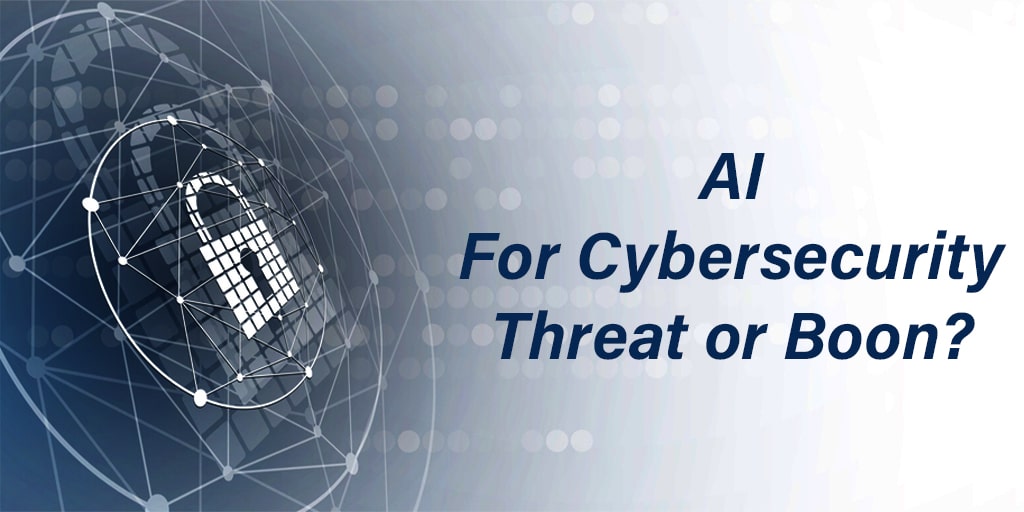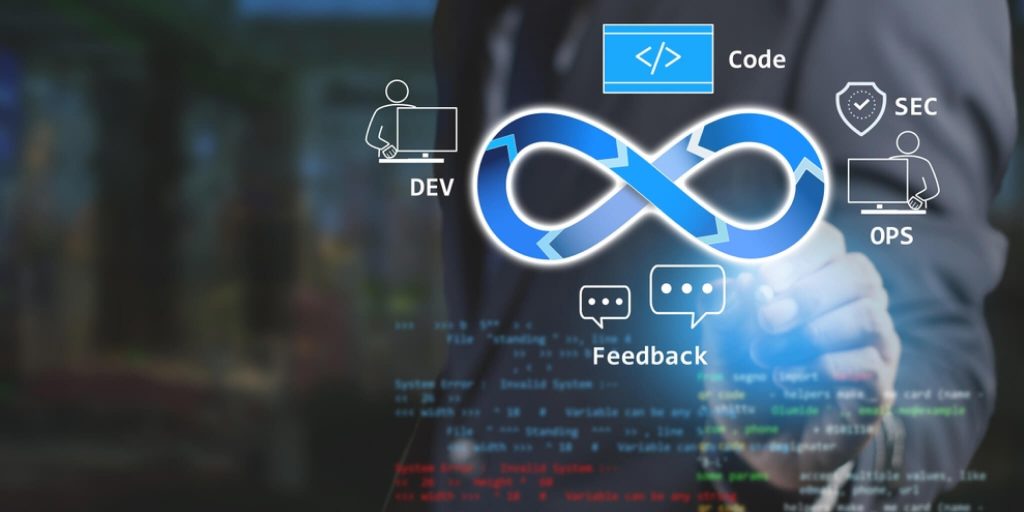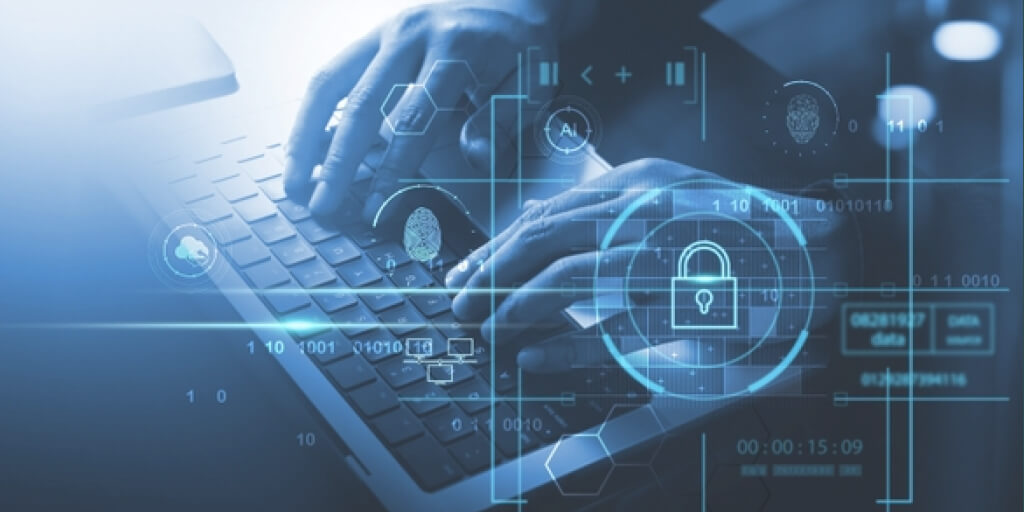With the dependence on technology worldwide, cybersecurity is becoming a serious concern. According to Statista, the global cybersecurity market size is expected to grow over USD 248 billion by 2023 (Source). Today, artificial intelligence is gaining immense popularity for its contributions to cybersecurity.
AI helps in cybersecurity in three major ways or stages to include threat detection, threat prediction, and response. A recent report from Capgemini shows 63% or two out of three organizations are planning to employ AI for cybersecurity by 2020 (Source). The same report also provides more significant statistics on AI in cybersecurity. It says 51% of organizations have high utilization of AI for the detection of cyber threats.
As security systems are evolving, so are hackers and hacking techniques. This Capgemini report also suggests that 69% of organizations believe that they will not be able to respond to cyberattacks without AI (Source).
A variety of AI applications are being used in cybersecurity to include spam filter applications, network intrusion detection/prevention, fraud detection, secure user authentication, cybersecurity ratings, hacking incident forecasting, botnet detection, and many more.
Google is using Deep Learning, another trending artificial intelligence function, to secure videos on its Cloud Video Intelligence Platform. Here, the content and context of the videos stored on the server are analyzed and on detection of any suspicious activity, alerts are issued.
But, AI has both positive and negative impacts in terms of cybersecurity. This has been a debate for a while! Cybersecurity experts claim that while AI helps make the systems secure, the same is also used by hackers and is becoming a security threat instead. This cannot be denied because AI systems learn and imitate patterns and can be trained to breach security too.
So, here we take a look at both the advantages and threats offered by AI in cybersecurity!
How Does Artificial Intelligence Contribute to Cybersecurity?
1. Data Management and Time Saving
In cybersecurity systems, artificial intelligence has a broad role to play. Firstly, AI helps in data management to include identification, classification, tracking, and protection of data.
AI can handle large volumes of data with ease and in very little time. Thus, it can identify suspicious data activity and send alerts for preventing a breach. AI-based cybersecurity systems also offer capabilities of locating redundant data to solve storage issues.
2. Threat Detection
Artificial intelligence offers remarkable results in threat detection for cybersecurity. AI systems offer the machine learning capabilities of getting “trained” with historical and relevant data. Companies are leveraging AI-based systems to detect threats through data analysis and pattern identification.
AI enables threat prediction through anomaly detection. Any unusual pattern or anomaly in the data indicates a possible threat and is reported by the AI-based cybersecurity systems. These systems thus help in malware detection. Most importantly, AI-based systems offer speedy predictive capabilities thus predicting and alerting about a possible threat promptly.
3. Automatic Response to Threat
AI-based cybersecurity systems also act in response to an identified threat by shutting down processes or blocking IP addresses.
In cybersecurity, AI-based automated systems offer much-reduced response time to threats and this ensures further security as a quicker response not just saves time but prevents bigger damages. Besides, this time saved can be utilized to manage other complex tasks.
4. Ability to Improve With Time
As discussed, AI uses machine learning and deep learning techniques to learn, develop, and improve over time by using and generating more data and identifying patterns.
Thus, gradually AI-based security systems evolve and improve their knowledge to understand cybersecurity threats and cyber risk. Thus, these offer enhanced performance and better results in cybersecurity.
5. Biometric and Multifactor Authentication
AI-based biometric systems offer more complex and accurate cybersecurity solutions. With the use of AI in cybersecurity, biometric authentication for access using fingerprints, retina, facial recognition, etc. has become accurate.
Multi-factor authentication using AI offers further security. With the help of AI and ML, the system collects user information to understand the user’s behavior and decide on what level of access privileges can be assigned to that user.
AI-based cybersecurity systems provide automated isolation of malware after threat detection.
6. Phishing Detection
AI-powered cybersecurity systems can detect spam emails. These are capable of differentiating between a fake and legitimate website and preventing a security breach.
AI through NLP (natural language processing) abilities can automatically collect information on cyber threats from articles and news and use this to provide insights into anomalies, cyberattacks, and prevention strategies helping companies to plan a timely response to these threats.
For example, Tessian’s AI-based cybersecurity platform prevents breaches, phishing, and data loss from malicious emails.
7. Catching Vulnerabilities and Suspicious Activities
AI-based cybersecurity systems look for vulnerabilities in advance. These identify potential vulnerabilities by analyzing and combining hacker’s reputation, discussions, and patterns, etc.
With this data, these systems alert the companies and provide insight into possible threats. This way companies can take prompt action to prevent any vulnerability or damage due to attack.
For example, Cynet 360 uses AI to scan and catch vulnerabilities and suspicious activities. The system also uses AI to respond to such vulnerabilities.
8. Understanding Human and Machine Behaviors
AI, ML, and ANN (artificial neural networks) help the cybersecurity systems understand deviations in behaviors of both machines and humans. These detect any unusual or suspicious behaviors that can indicate a possible security threat.
For example, AI-based cybersecurity systems help identify and catch at-risk employees, high-risk employees, account misuse, email file transfer, compromised account, dormant file access, data exfiltration, and more.
With threat detection through behavioral analysis, AI-based cybersecurity system alerts and takes precautionary measures to include quarantine or other appropriate remedies for network security.
Threats – Misuse of AI in Cybersecurity
1. Creating Fake Data
AI is being misused by hackers being used to create fake data that can fool and unlock biometric systems to cause a security breach. For example, AI and ML-based machines can crack captchas. AI (through GANs) enables the creation of fake fingerprints.
2. Automated and Quicker Cyberattacks
The way AI helps in automating processes for cybersecurity, it also makes the work easier for hackers by helping them automate attacks. It saves costs and time for hackers that can result in increased frequency of attacks.
AI in cybersecurity helps make the processes faster. Thus, it also expedites the hacking process and leads to quicker attacks, not leaving enough time for cybersecurity experts to counter the cyberattack.
3. Mimicking Human Behavior
AI-based malware can even possibly mimic human behavior to automatically generate and send disguised malicious keystrokes to fool the security systems and evade detection.
4. Capable of Generating New Threats
Most importantly, AI has unlimited capabilities that along with ML, deep learning, natural language processing, and many more, can be used by hackers to create new threats in years to come.
Wrapping Up
As digital transformation is gaining momentum across the globe, cybersecurity is becoming a serious concern for businesses. Cybersecurity Ventures predicts cybercrime will cost the world more than USD 6 trillion annually by 2021 (Source).
But, to safeguard business operations, artificial intelligence has come to rescue across the globe. AI has brought a revolution in many industries and numerous business processes, very importantly in cybersecurity. While the same is being misused by hackers for smarter hacking, AI has enabled security systems to develop and improve with time to get more secure.
In years to come, we can expect more robust AI-based cybersecurity systems ruling over the market across the globe.
We provide artificial intelligence consulting services to help organizations leverage machine learning technologies and build breakthrough AI products. Contact us now!!





